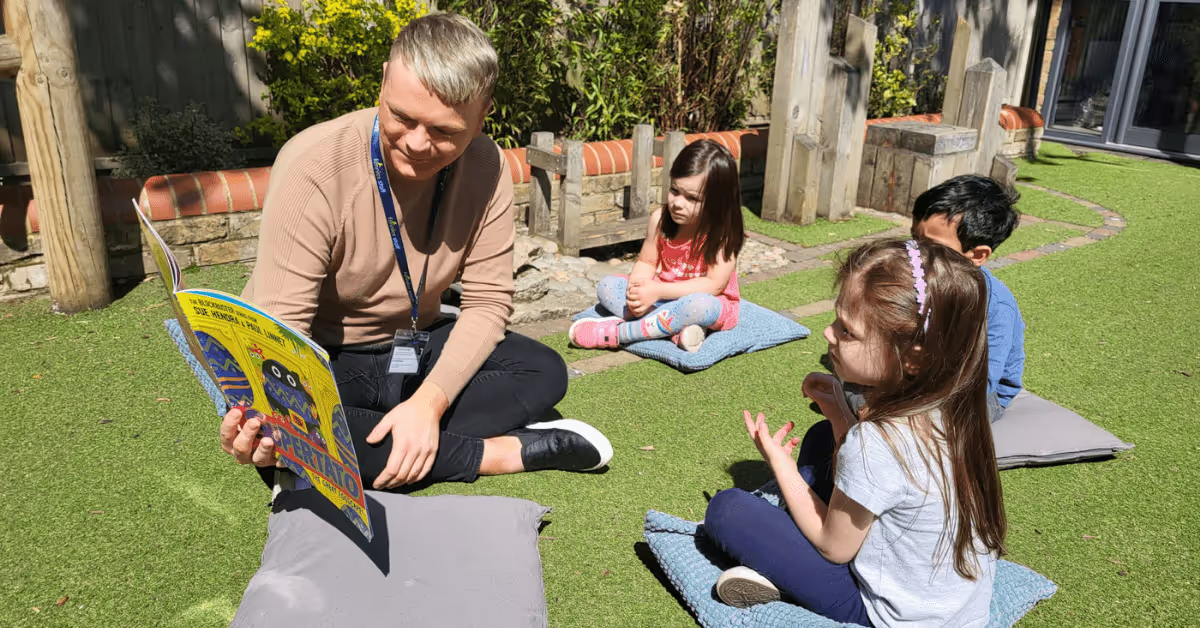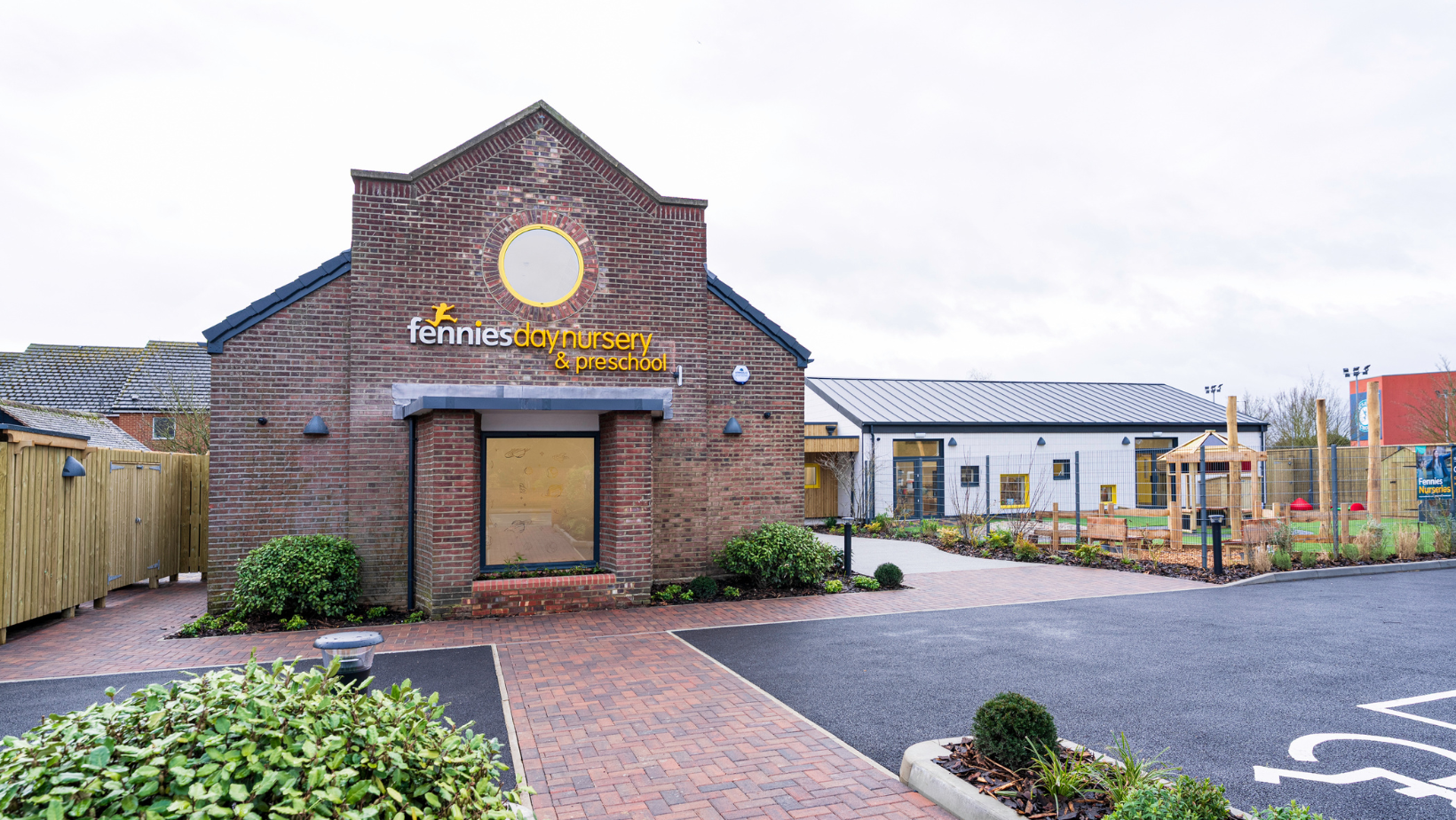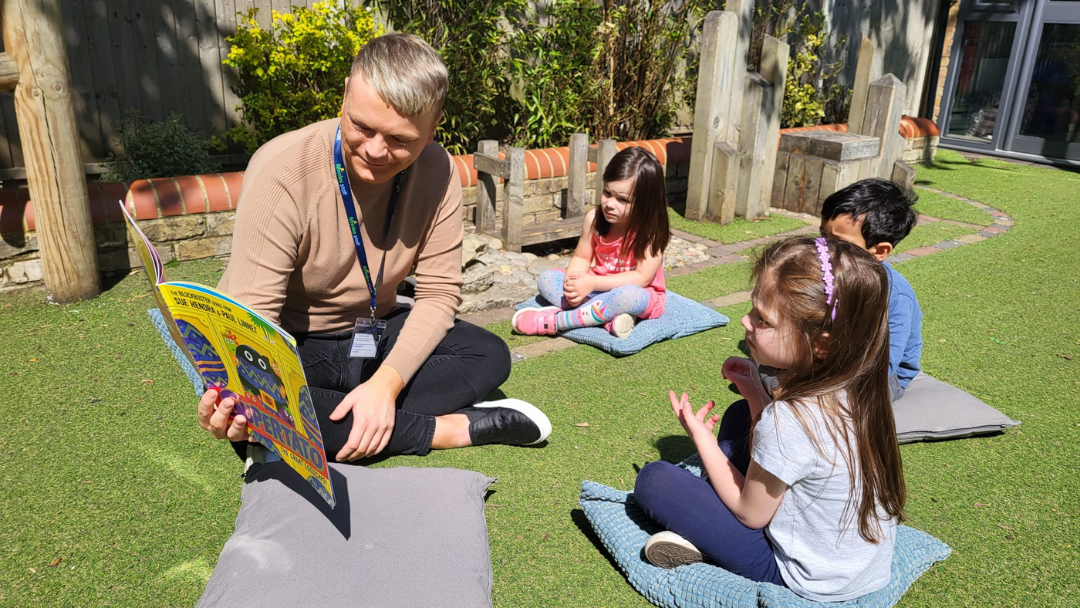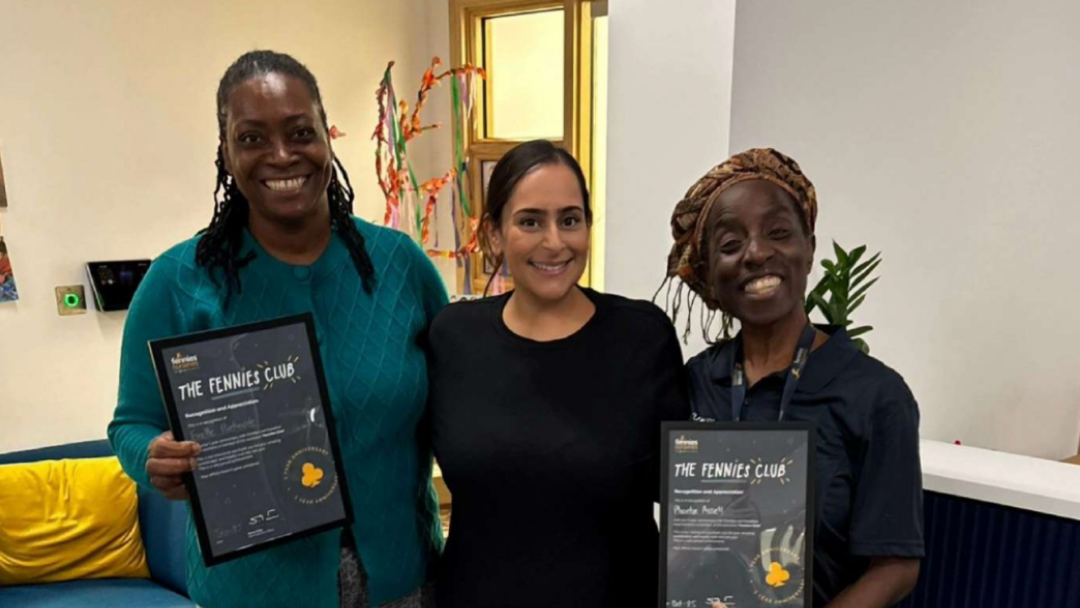Our Academy Lead, Jamie, shares why it’s so important to be a leader in the early years and how you can build your skills to inspire and motivate your nursery team.
We asked our teams what makes a good leader
That first step into leadership can be a significant moment. One that wecannot assume will always be a drive for those that are drawn to a career in working with children. So, it’s important to find that connection and love for leading and shaping the future of not just children but colleagues too. Whether you’re that inspirational role model, the attentive listener or the structured, organised educator, you’re laying the foundations for those making their way into the Early Years sector.
At Fennies, one of our core values is to 'Lead', but how does that look across different roles? In a nursery, there are several leadership roles that may spring to mind, like a Nursery Manager, Third in Charge or Room Leader. But it’s important to know that no matter what your role is, leadership is always an important part of the job description. Whether you’re an Apprentice setting up a new activity in your room or a Nursery Manager motivating your team after a long day, it’s your leadership skills that will support, inspire and encourage those around you.
So, with that in mind, let’s look into the qualities a good leader should have.
What makes a good leader?
What’s the difference between a manager and a leader? Let’s start with the definition. We could define managing as looking inward at the nursery or room, finding resources from within their organisation, supporting the individuals within their team, understanding and nurturing goals, strengths and ambitions. Whereas the leader, will think outwards. Noticing the trends within the sector, celebrating these and sharing those inspirational perspectives to motivate their team. Spotting patterns that may be impacting the children within their setting, such as the impact of Covid on communication and language. Being visionary in their ideas and willing to implement new ideas.
Leadership of course will look different depending on your individual style. Like management, it’s a talent that you can grow and nurture. This is why I find it so important to offer staff opportunities to hone these talents.
Here’s just a few examples of qualities that you may want to bear in mind if you would like to be an exceptional leader (Gallup 2022).
Build Relationships
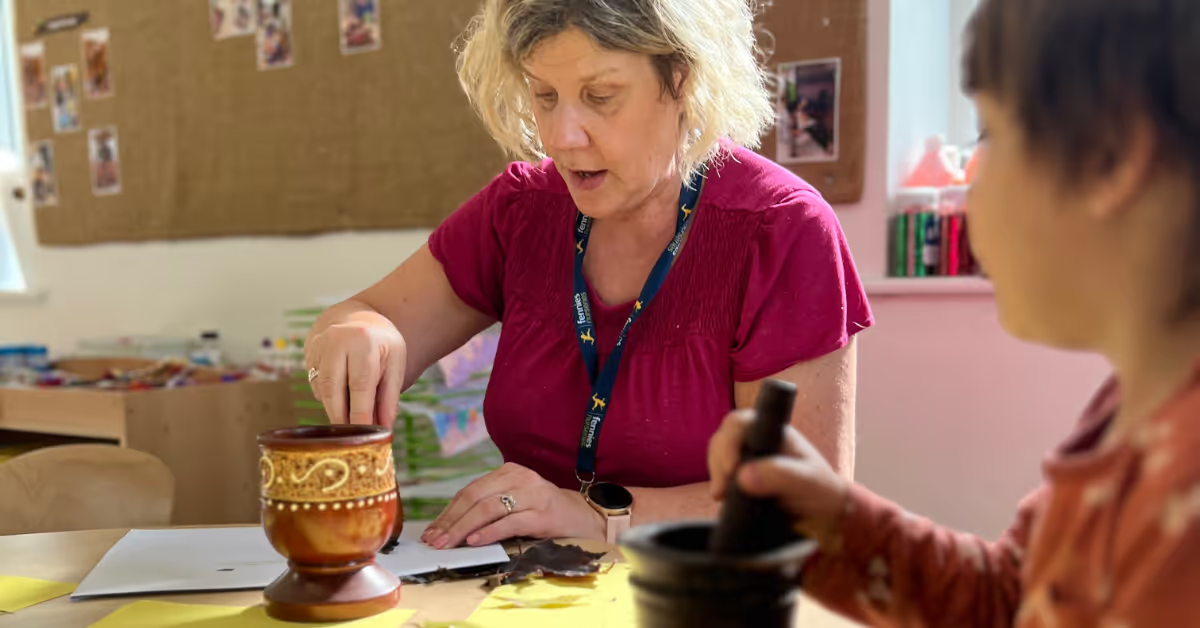
If you’re looking to be an inspirational leader, you’ve got to have people who want to be led. Connections need to be made; trust needs to be built. It’s essential to understand and appreciate people for the individuals they are.
Develop People
Do the people around you feel that they are growing and learning? If people aren’t developing, then it’s only a matter of time before they leave. So how do you help people grow? – Do you role model, do you share good ideas and practice, do you ask people where they want to grow next?
Lead Change
Leaders will keep moving forward, and embrace the changes that will make them, their rooms, and their practice better. Being the leader doesn’t mean you have to make the decisions. If you want your team to embrace change, let them have ownership. For example they may have good ideas on those routines or processes that need improving so ask them for continuous feedback.
Inspire Others
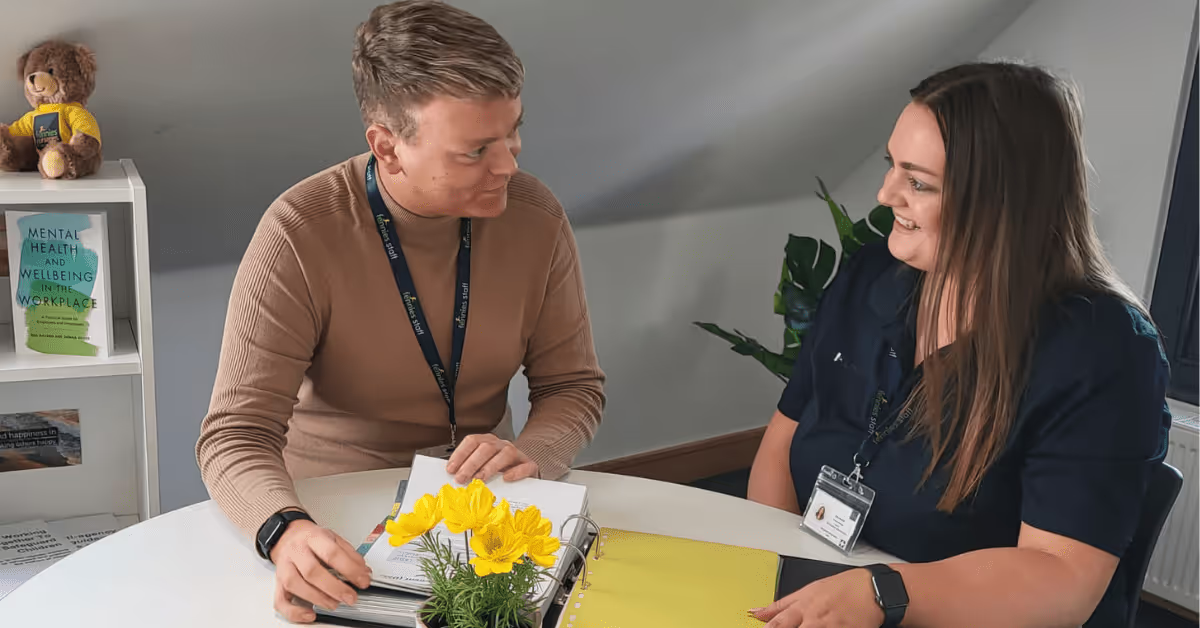
Inspiring your team and seeing the impact you’ve made on them can be one of the most rewarding things you can do. This can be anything from giving someone the confidence to try out new ideas or motivating them through a pep talk on a busy day. These little things can have a huge effect on helping your team to deliver the best possible childcare.
To inspire people, the reason ‘why’ must be clear. What are you working towards in your room or nursery? If your inspirational practice is engaging children, supporting them to grow and intentionally meet the needs of your room then you are setting a great example for those around you.
Think Critically
An exceptional leader evaluates plans, understands risks, organises their thoughts and creates clear actionable next steps to improve practice. Involving the team in either sharing their opinions or in understanding these actions are important.
Communicate clearly
How do others like to be communicated with? Have you asked them? What do they need communication about? Sharing ideas and information that matter to others is essential. Good communicators don’t tell, they ask questions, listen, brainstorm and share information.
Create accountability
The responsibility may sit with you as the leader, but everyone in your team is accountable for something. A culture of accountability starts with you, when deadlines or tasks are set, do you keep to yours? Are you honest and respectful if you cannot meet yours? The dreaded word of delegation,are you any good at it? If you are, the sense of ownership others feel may make them feel confident and proud. Whereas taking other people’s responsibilities or barking orders may be more demoralising and have the opposite effect on your team.
We asked our teams what makes a good leader
We asked some of our leaders across Fennies to share what they think makes a good leader in the early years.
I think as a leader it’s important to firstly be a good communicator, this includes not only being able to give direction, make decisions and delegate but also be a good listener and open to new ideas. For me, as a leader, I want to inspire and motivate my team by involving everyone and working together is, in my opinion, the best way to achieve that.

Rosjana, Leader of Learning at Fennies Wimbledon. I believe to be a good leader you need to be able to be adaptable, calm and approachable. Through my experience of leading teams, I have noticed each individual staff member has different ways in which they learn, with some learning more through physically doing tasks, whilst others learn visually. It’s always good to take note of these to make sure that you’re supporting each member of staff in the way that works best for them. Also ensure you have a calm and approachable manner so that staff feel happy and comfortable to ask for guidance from you.

Jamie, Deputy Manager at Fennies Beckenham. A good Room Leader should be able to communicate with their fellow colleagues as well as other rooms and support them where needed. Offering support to new people and helping them settle in, especially in busy nurseries.

Jay, Room Leader at Fennies Woking. The traits that a good leader should have are: good communication skills so that there is organisation and structure in the room. Confidence that will continue to grow every day as you review your own practice and reflect on what you would do differently next time. Being opened mined to every situation that arises and lastly, encourage everyone around you to progress within their own professional development. Remember, if your actions inspire others to dream more, learn more, do more, and become more you are a ‘leader.’

Room Leader at Fennies Croydon. As a Room Leader, it’s important to role model your expectations whilst offering support, inspiration and guidance so that your team are confident practitioners.

Room Leader at Fennies Christchurch. I think a good leader should be a good listener, be understanding and empathetic, be compassionate and caring, be able to communicate effectively, being firm but fair and unbiased when making decisions.

Room Leader at Fennies Christchurch. To be a good leader it’s important to have a calming and respectful attitude to children, staff and parents. For me, having a creative trait helps me when thinking of ideas for activities as well as when supporting my team with their development. Being creative in my techniques allows me, not only to lead, but to also listen and take on their ideas and opinions.

Danni, Deputy Manager at Fennies Horley. Having worked my way up from an unqualified apprentice to a Room Leader and Third in Charge, I have seen first-hand many different qualities of a good leader. The one that has stood out to me the most, and the most important one for me, is the ability to be an effective communicator. If you’re not able to communicate effectively and clearly with the children, staff, management, and parents, you will never be able to make a change or be heard. Being able to encourage, empower and inspire everyone around you are all desirable qualities, none of which are possible without communication. You must be able to work in a team, you must be empathetic, and you must be reliable and approachable in order to create bonds with those around you, but in order to obtain all these amazing qualities, you must also be able to communicate.

Georgia, Room Leader at Fennies Horley. I think for me a good trait as a room leader is being able to reflect on my own practice and experiences, embracing the positives and using this to inspire and motivate my team. As well as this, it’s important to tune in and engage into my team’s style of learning so that I can understand how to best support and motivate them. Also, good traits to have are being open and honest, transparent and a good dose of fun!

Danielle, Deputy Manager at Fennies Kidbrooke
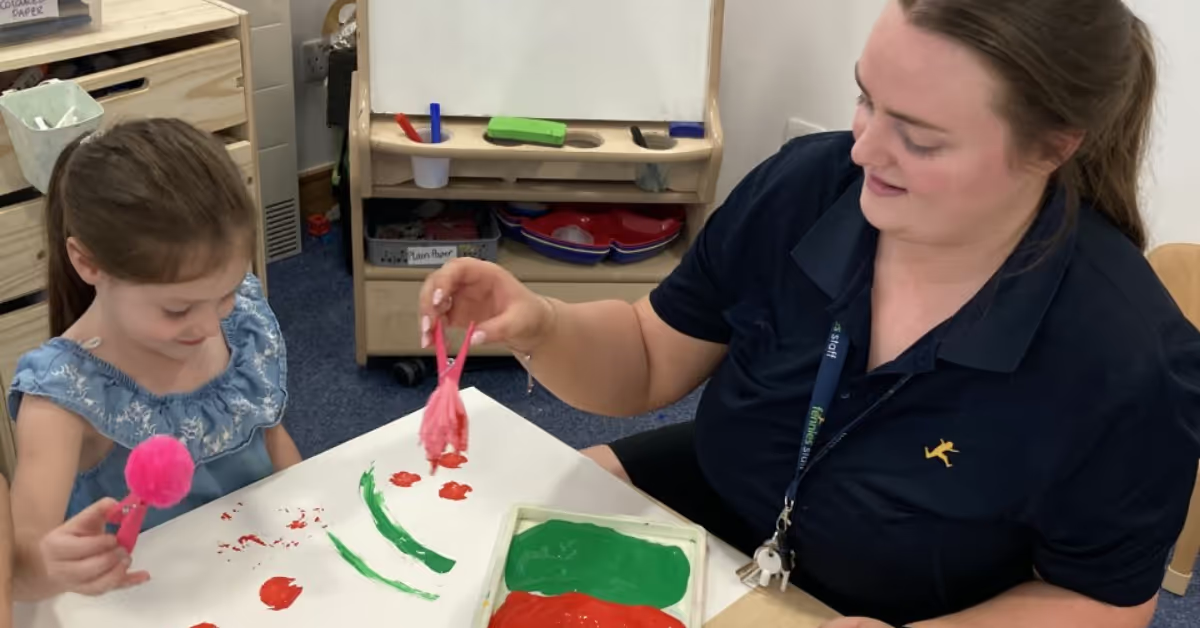
Interestingly enough, the qualities of a good leader were written before I reached out to our teams at Fennies but it was great to see they also mentioned a lot of the same points. One of the most common things to come up as well is the importance of being a good listener and valuing your team's feedback and opinions to help you lead. Remember that everyone is an individual that learns and is motivated in a unique way. Being able to tune into this is one of the most important things you can do as a leader.
As you can see, our leaders have strong perspectives on what it means to be an effective leader. This commitment and belief helps shape the leaders they become. Their drive has motivated twenty of our inspirational Room Leaders to join our first Room Leader Programme – titled ‘Inspiring Others’. The programme has been built to allow our learning leaders (link to Development Hub on website) to reflect on their roles, thinking about the importance to empower their teams to make decisions. Built and written by our inspirational practitioners across Fennies, this personalised programme will give individuals the chance to improve their self-awareness to become our leaders of the future.
We know this will create the start to leadership that our young leaders need.
If you’re passionate about leadership within the early years or would like to build on your existing skills, we offer a Room Leader Programme. If you'd like to discover more about working at Fennies, visit our Careers page.
FAQ
Subscribe to our newsletter
Stay up to date with Fennies news


